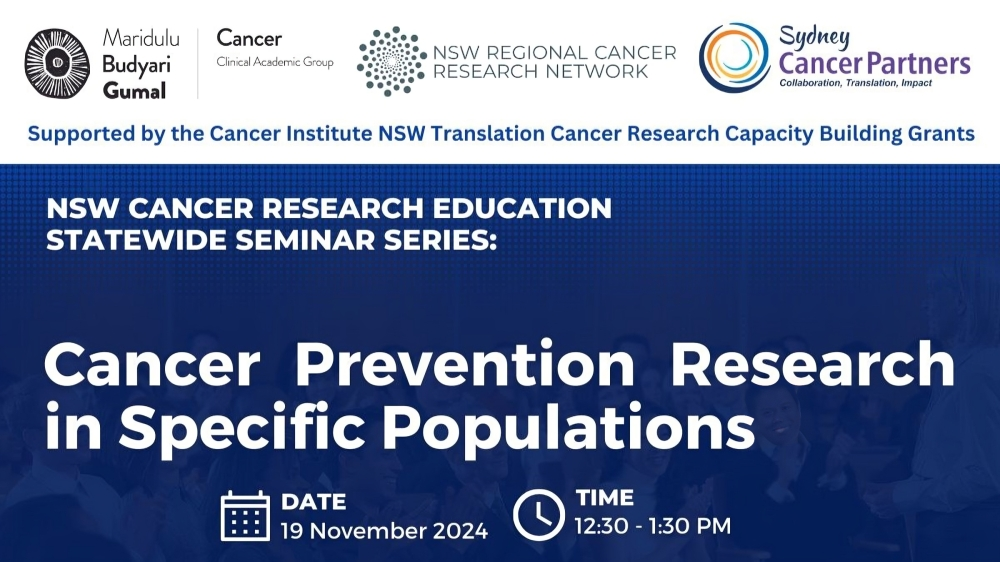Addressing Health Disparities with Culturally Sensitive Strategies in Cancer Prevention, Detection, and Treatment
This seminar will share insights from two important cancer prevention studies: “Culturally Responsive Approaches to Smoking and Vaping Cessation” and “Understanding Youth Perspectives: Cervical Cancer Prevention among Ghanaian High School Students – Insights for Practice.”
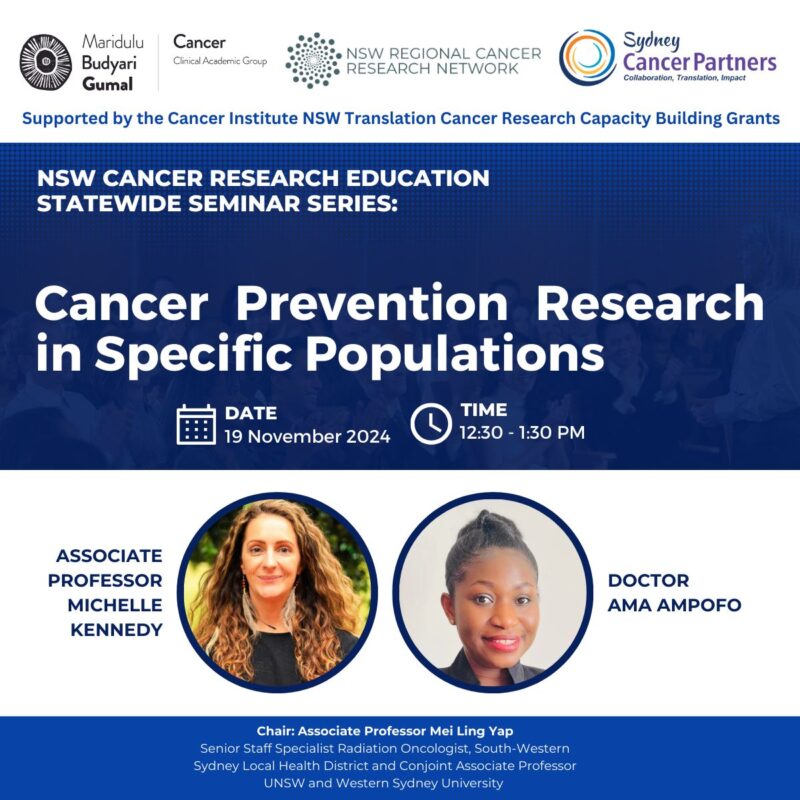
The speakers will discuss their research, highlighting the need to consider individual, social, and cultural factors that shape health outcomes within their communities. The aim is to promote a deeper understanding of the tailored strategies required to effectively address cancer prevention in diverse populations.
‘Cancer Prevention Research in Specific Populations’
Date: Tuesday, 19th November
Time: 12:30-1:30pm (AEST)
Register Here
Speakers
Michelle Kennedy
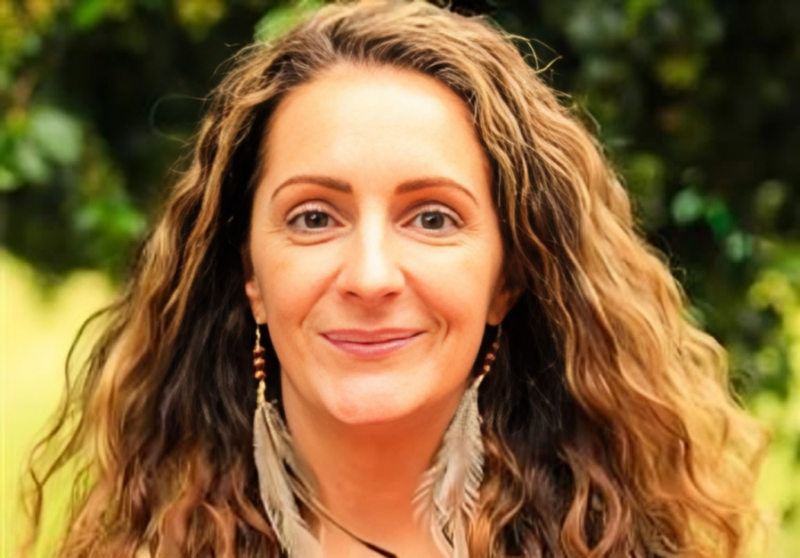
Associate Professor Michelle Kennedy is a Wiradjuri woman based at the University of Newcastle, where she leads national research in tobacco control, health research ethics, and Indigenous methodologies. Her work focuses on the development of Indigenous-led evidence-building, with an emphasis on culturally responsive approaches that amplify Indigenous voices.
With 19 years of experience in community development, social work, and health research, Michelle’s research is making a significant contribution to smoking and vaping cessation, drawing on community priorities and building on the strengths of Aboriginal and Torres Strait Islander people. In addition to her academic role, she serves as the Assistant Dean of Indigenous Strategy and Leadership in the University of Newcastle’s College of Health, Medicine and Wellbeing. She is also the Strategic Research Advisor for the Lowitja Institute.
Ama Ampofo
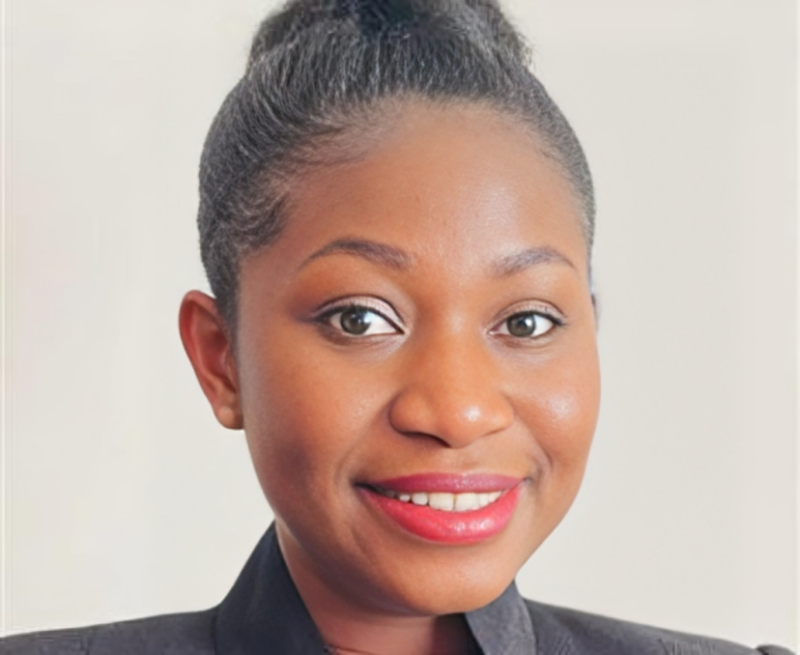
Dr Ama Ampofo is an early career researcher at the University of Newcastle and a registered nurse with over seven years of experience in general medicine, surgery, and aged care. As the leader of the Cervix for Life Foundation in Ghana, she has led community-based initiatives focused on cervical cancer awareness and screening for eligible women.
Dr Ampofo completed her PhD in Public Health and Behavioural Science at the University of Newcastle in 2023, where she concentrated on cervical cancer prevention, exploring awareness, attitudes, and perceptions around HPV vaccination and screening in sub-Saharan Africa. In recognition of her contributions, she received the prestigious 2022 Health and Behaviour International Collaborative Award.
Dr Ampofo has authored 17 peer-reviewed journal articles over the past five years, with several more currently under review in high-impact journals. She has secured over $60,000 in competitive grants, including funding from the University of Newcastle’s College of Health, Medicine and Wellbeing, the Hunter Medical Research Institute, and the Australian Prevention Centre. Her research aims to improve health outcomes and expand knowledge in vulnerable populations, particularly in the context of cervical cancer.
Chair – Mei Ling Yap
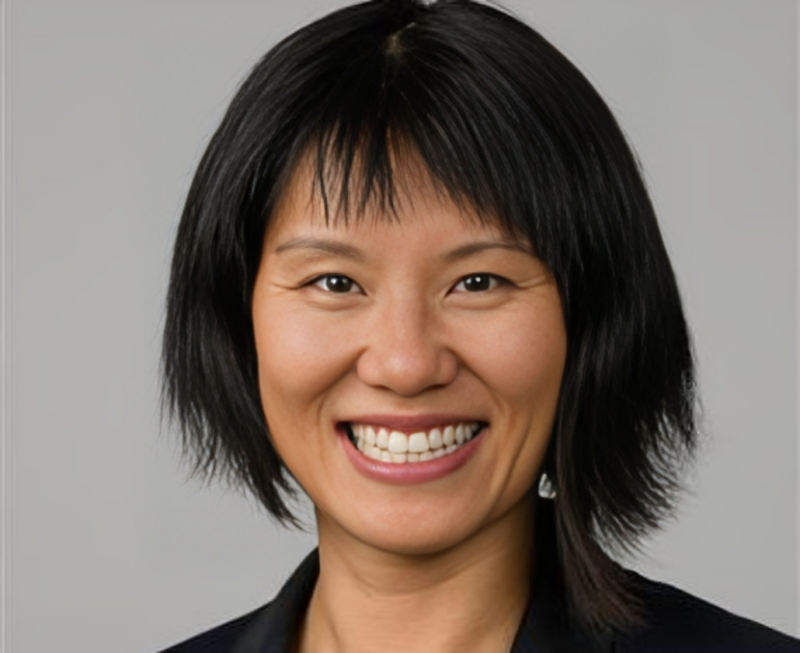
Associate Professor Mei Ling Yap (MBBS BSc PhD FRANZCR) is a clinician-researcher based in Sydney, Australia. She is a Senior Staff Specialist Radiation Oncologist with the South-Western Sydney Local Health District and a Conjoint Associate Professor at both the Sydney South-West Clinical School, University of New South Wales, and the School of Medicine, Western Sydney University.
A/Prof Yap leads the Collaboration for Cancer Outcomes, Research and Evaluation (CCORE) and is the Head of the Cancer Program at the George Institute for Global Health, UNSW. Her clinical expertise focuses on the treatment of lung and breast cancers, areas she developed an interest in during a clinical research fellowship at the Princess Margaret Cancer Centre in Toronto (2011-2013).
A/Prof Yap’s research is centred on addressing equity in cancer control, and she currently holds a National Health and Medical Research Council (NHMRC) Emerging Leader Investigator Grant (2023-2027). Her PhD investigated disparities in access to radiation therapy in New South Wales, Australia.
She also co-leads projects aimed at enhancing education, training, and research capacity in low- and middle-income countries across the Asia-Pacific region, as an Executive Member of the Clinical Oncology Society of Australia (COSA) Global Oncology Group and National Project Coordinator for the IAEA Regional Cooperative Agreement. In 2022, A/Prof Yap was awarded the Royal Australian and New Zealand College of Radiologists Rouse Fellowship. She is also a member of the Editorial Board for JCO Global Oncology.
NSW Regional Cancer Research Network:
“The NSW Regional Cancer Research Network, Sydney Partnership for Health, Education, Research and Enterprise (SPHERE) Cancer Clinical Theme and Sydney Health Partners Cancer CAG, invite you to attend the final 2024 NSW Cancer Research Education Statewide Seminar, titled:
‘Cancer Prevention Research in Specific Populations’
Date: Tuesday, 19th November
Time: 12:30-1:30pm (AEST)
Register Here
Improving health outcomes for Aboriginal and Torres Strait Islander communities and other specific populations requires culturally attuned cancer prevention, early detection, and treatment approaches.
This seminar provides insights from two cancer prevention studies; speakers will present their research, emphasising the importance of responding to individual, social, and cultural factors that influence health outcomes within their respective communities. This discussion aims to foster a deeper understanding of the tailored approaches necessary for effective cancer prevention research in specific populations.
Speakers:
– Associate Professor Michelle Kennedy will present her research, “Culturally Responsive Approaches to Smoking and Vaping Cessation”.
– Dr Ama Ampofo will present her research “Understanding Youth Perspectives: Cervical Cancer Prevention among Ghanaian High School Students – Insights for Practice.”
Chair:
– Associate Professor Mei Ling Yap (MBBS BSc PhD FRANZCR), is a Senior Staff Specialist Radiation Oncologist based in South-Western Sydney Local Health District, and Conjoint Associate Professor at the Sydney South-West Clinical School, UNSW, and School of Medicine, Western Sydney University. She is the Lead of the Collaboration for Cancer Outcomes, Research and Evaluation (CCORE) and Head of the Cancer Program at the The George Institute for Global Health, UNSW.
NSW Cancer Research Education Statewide Seminar is supported by the Cancer Institute NSW Translation Cancer Research Capacity Building Grants.”
Stay tuned by visiting oncodaily.com


